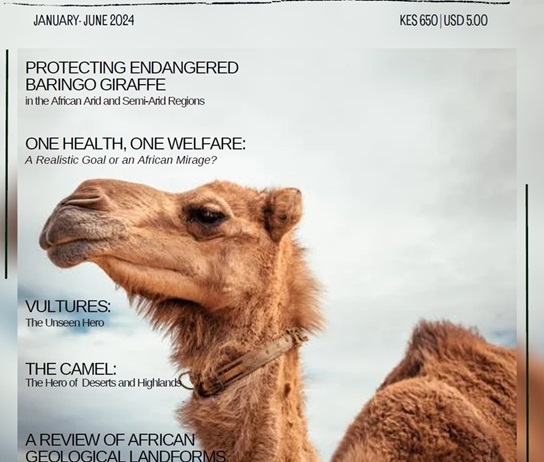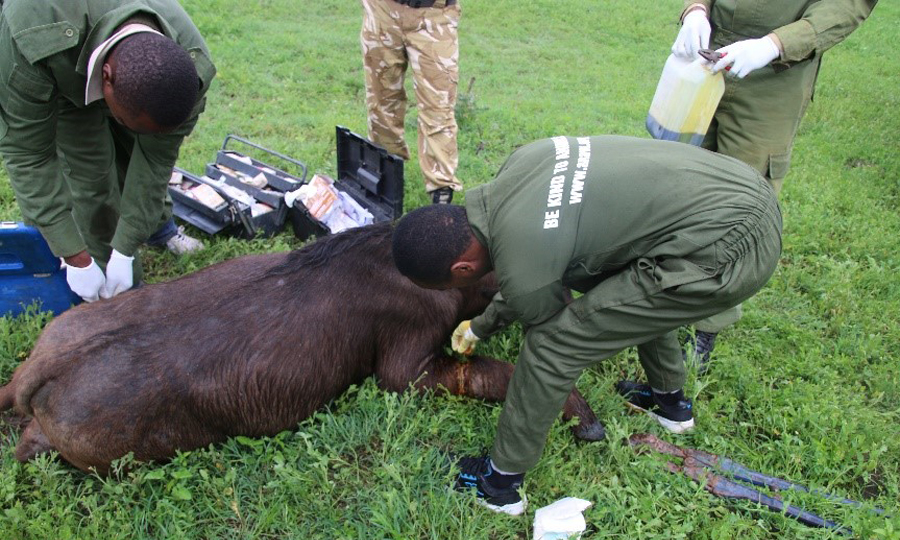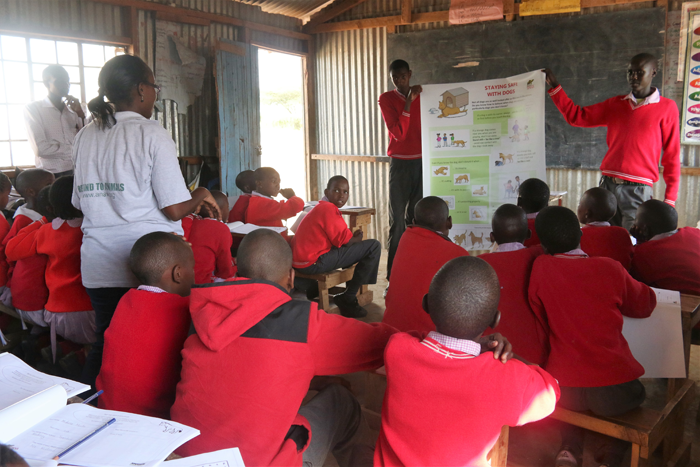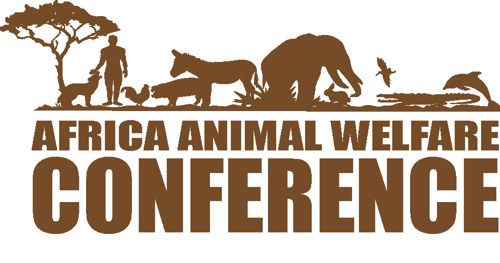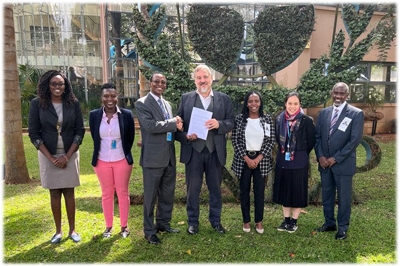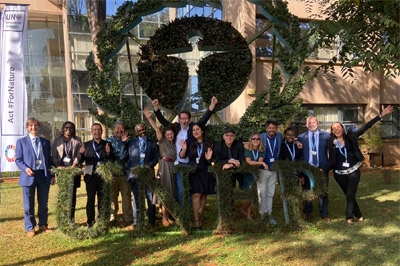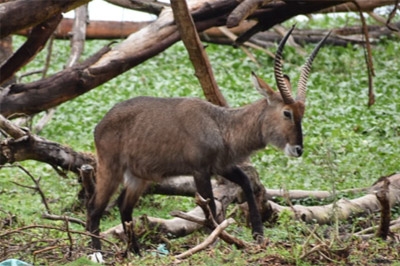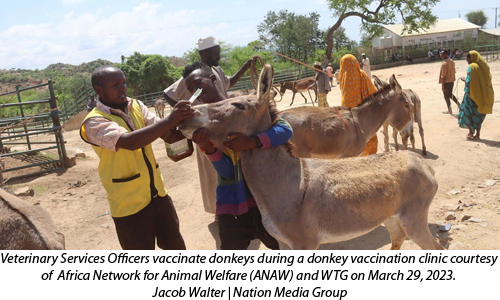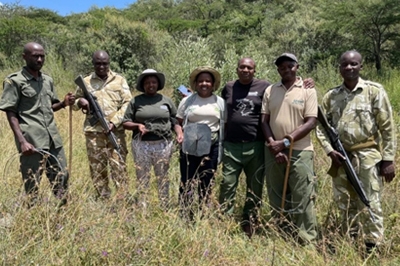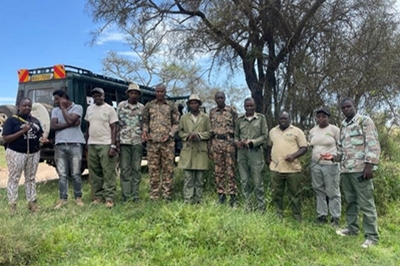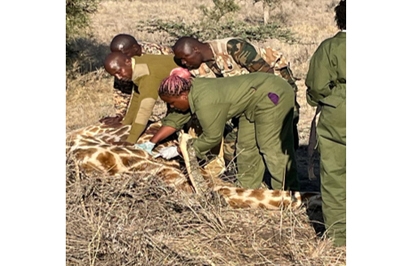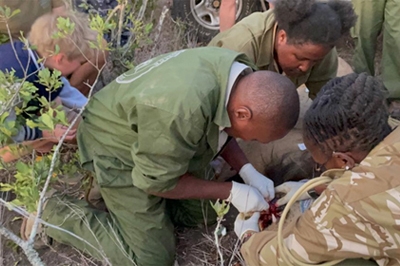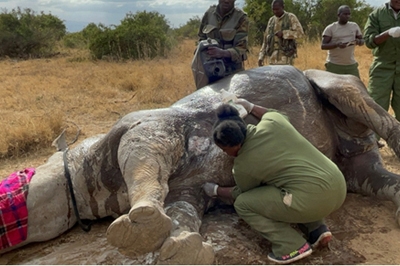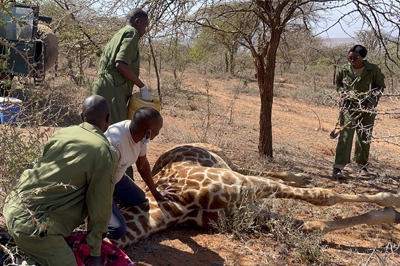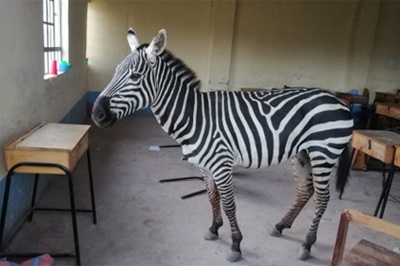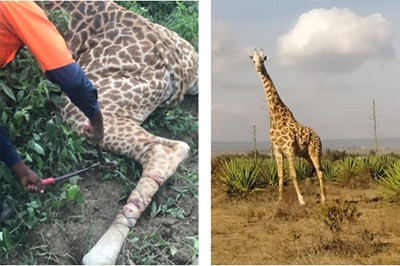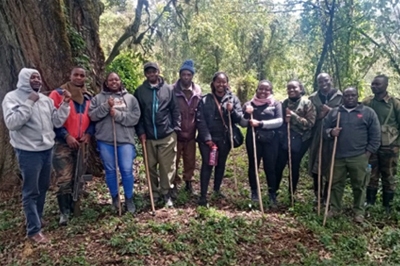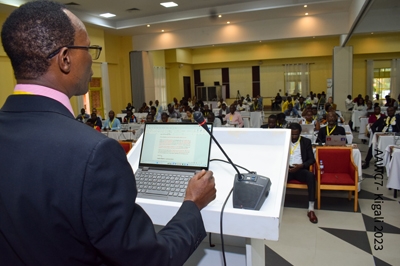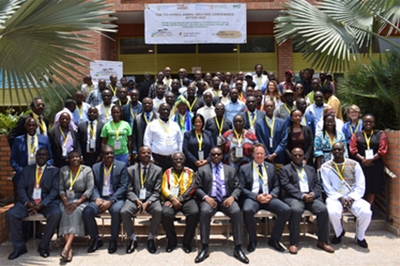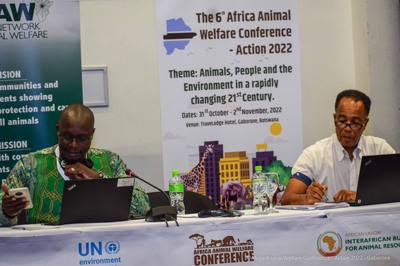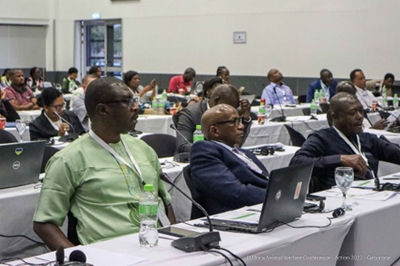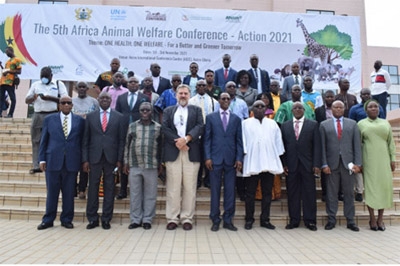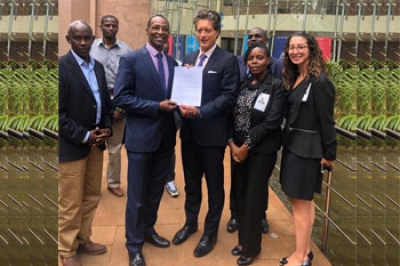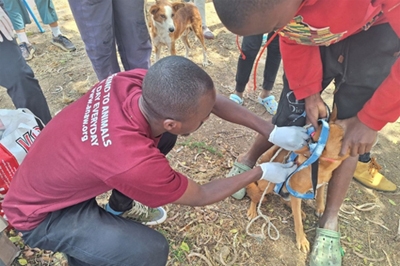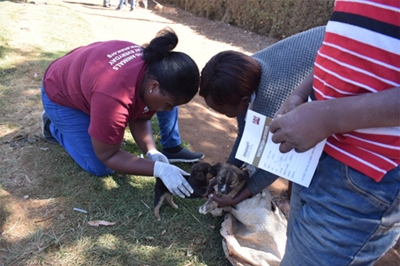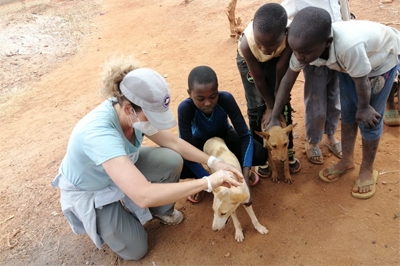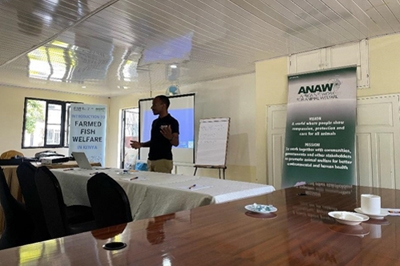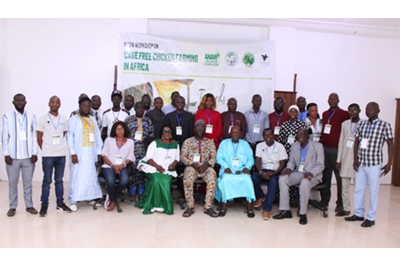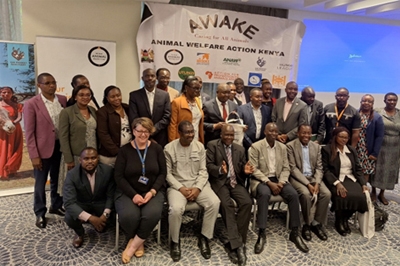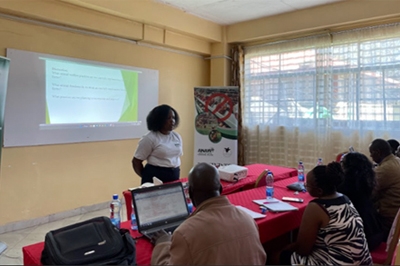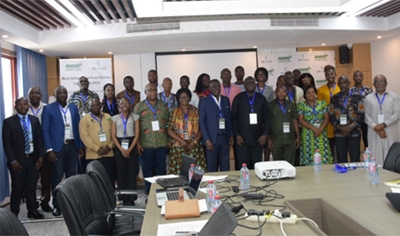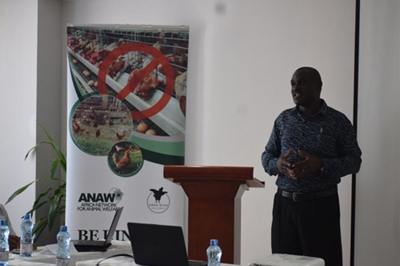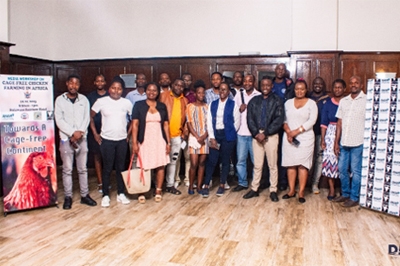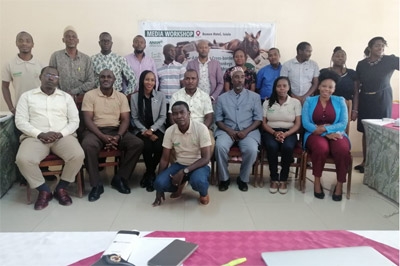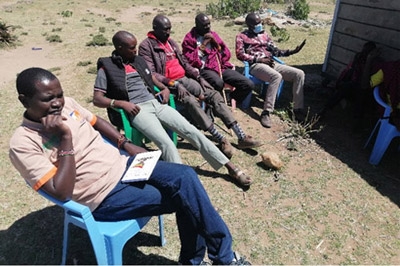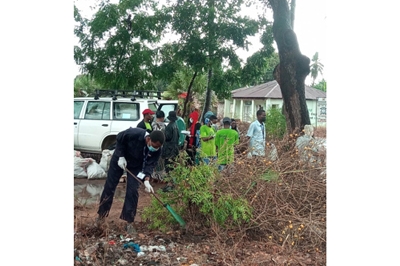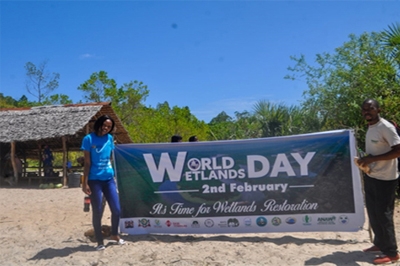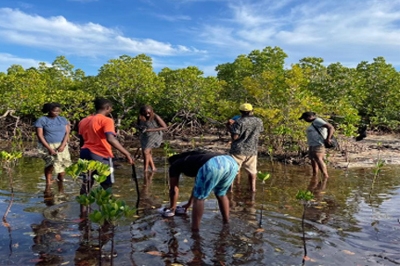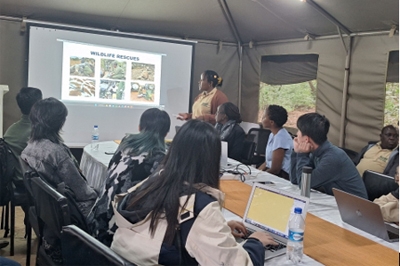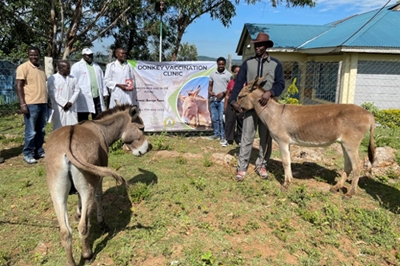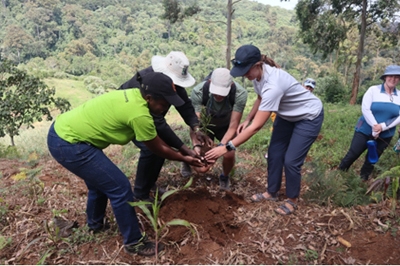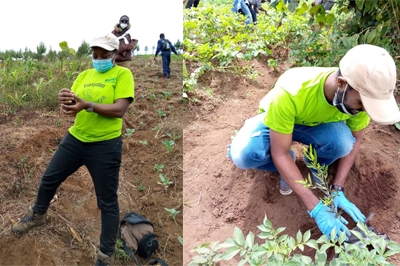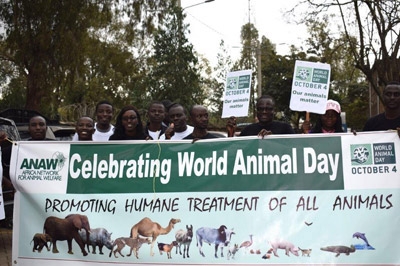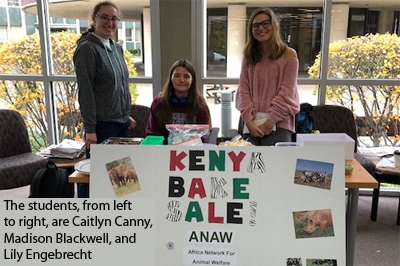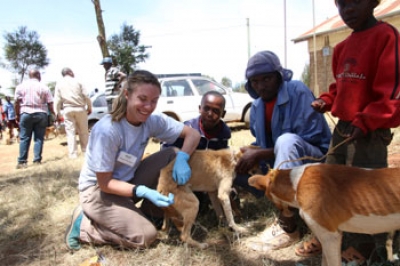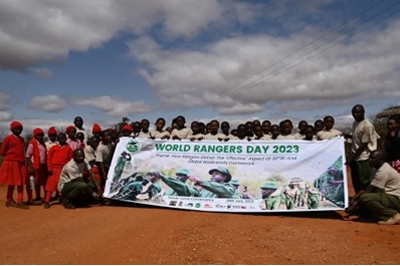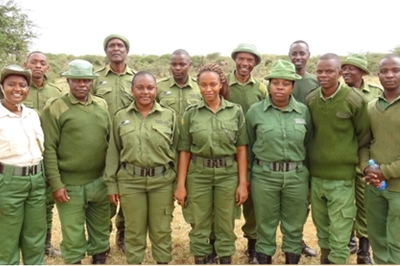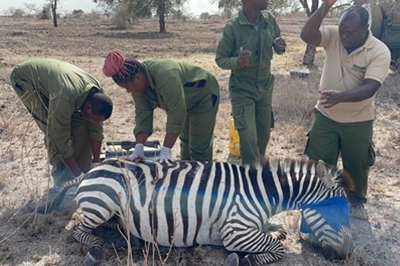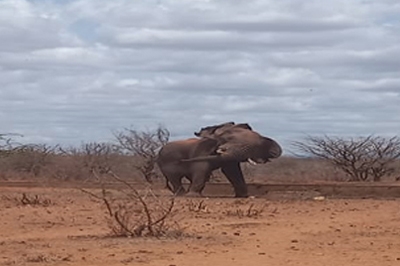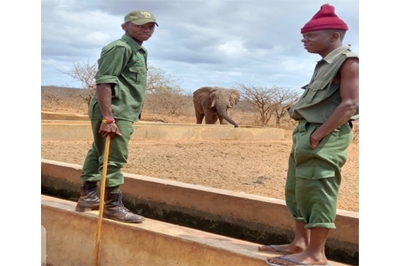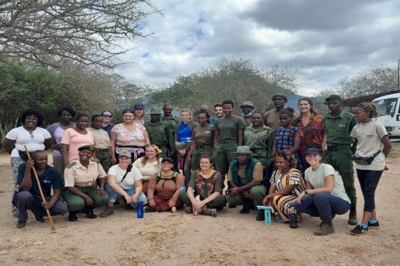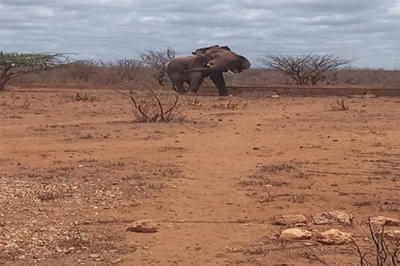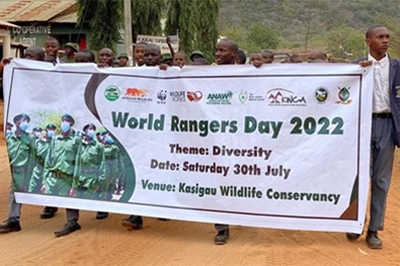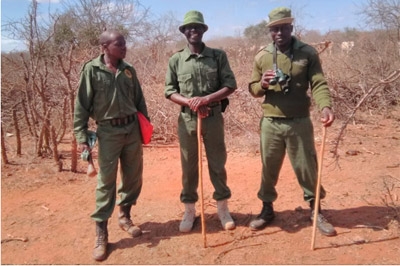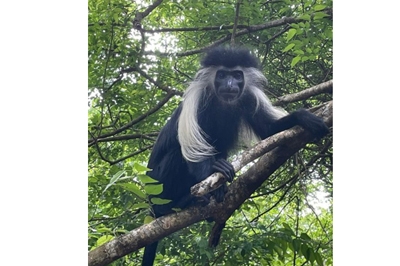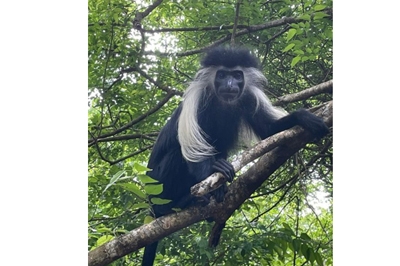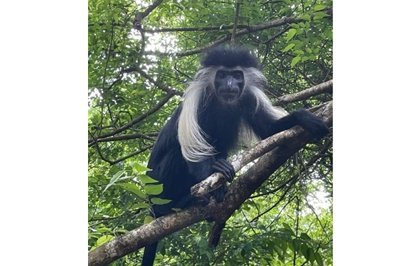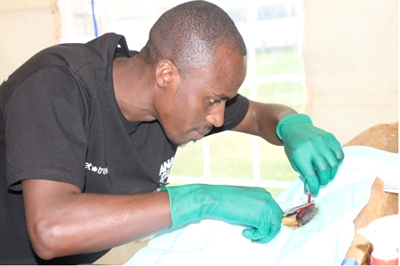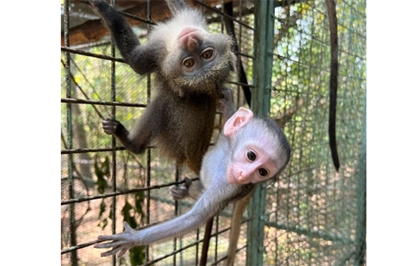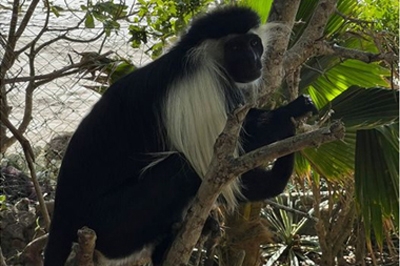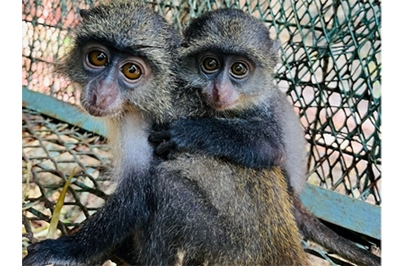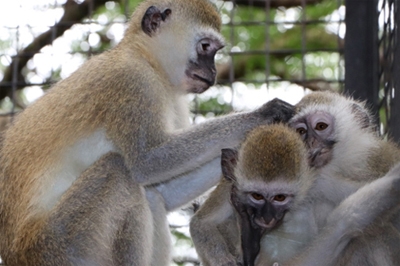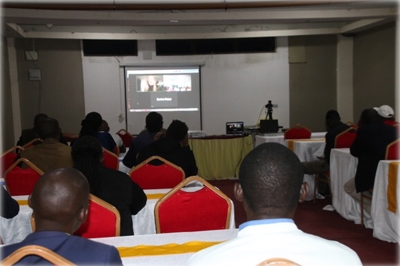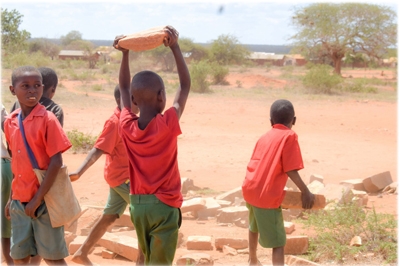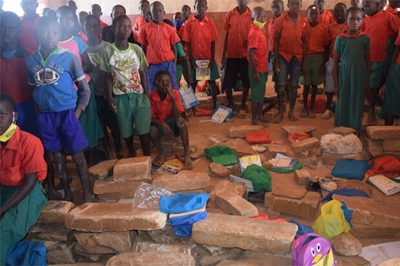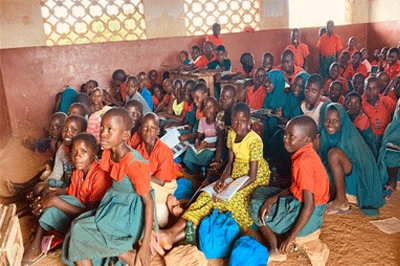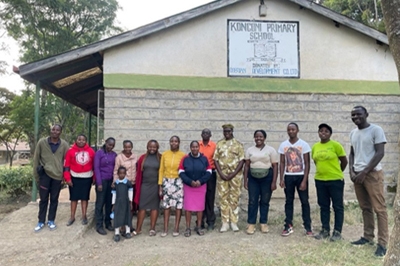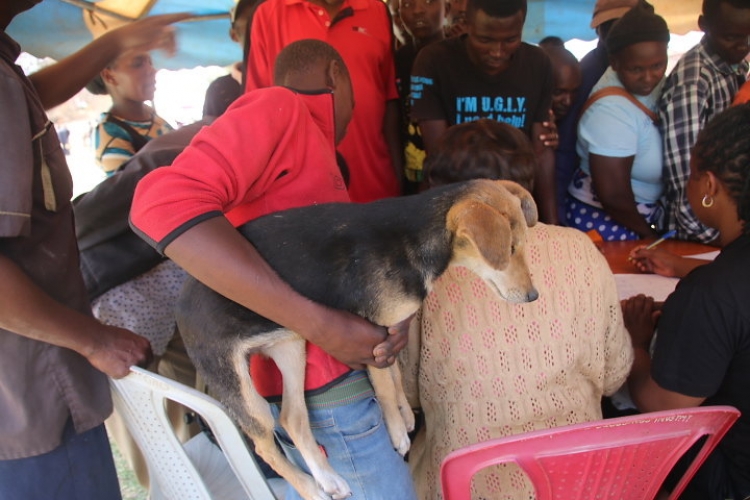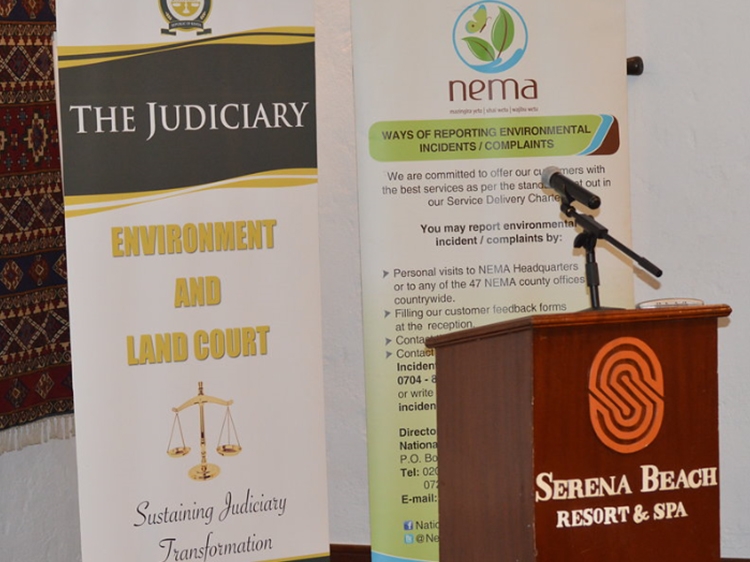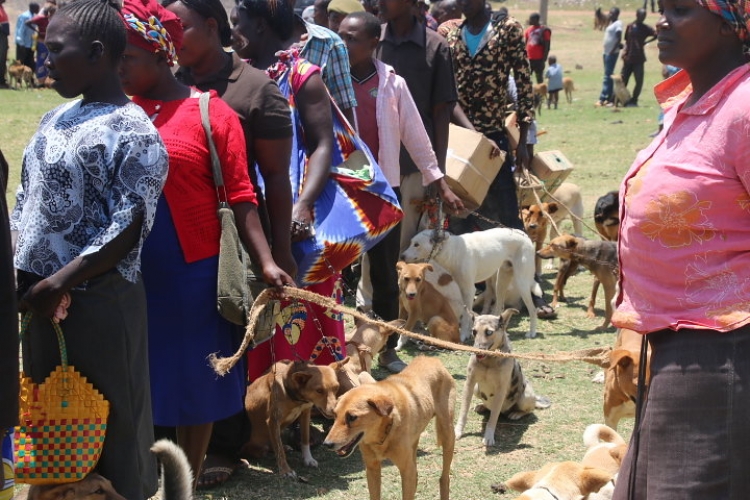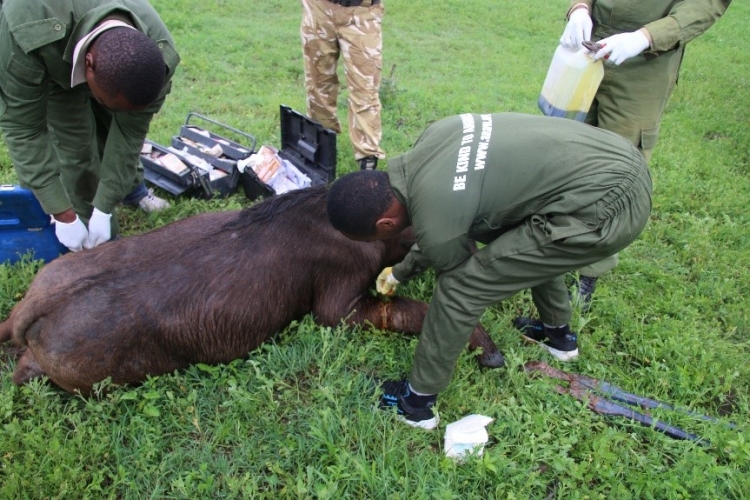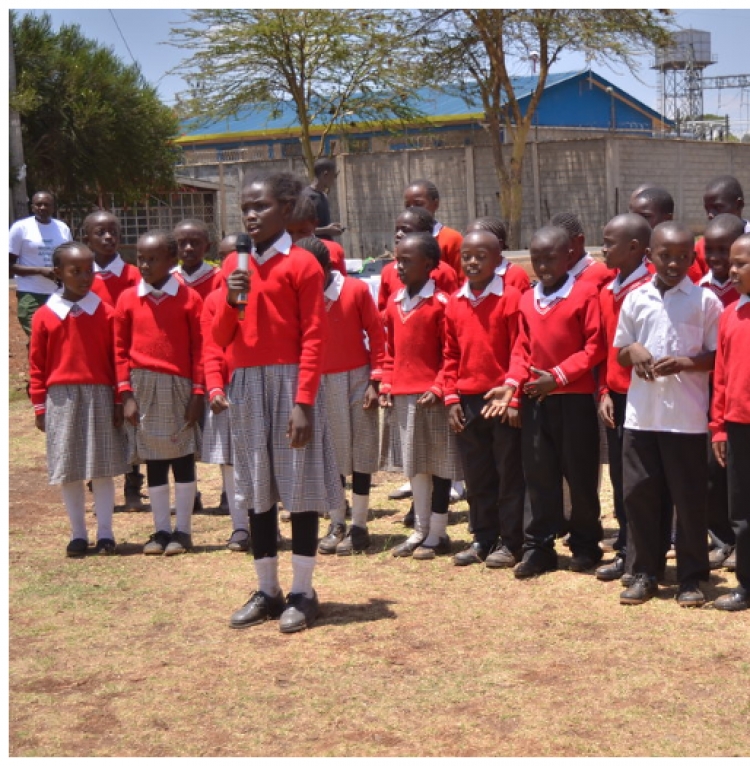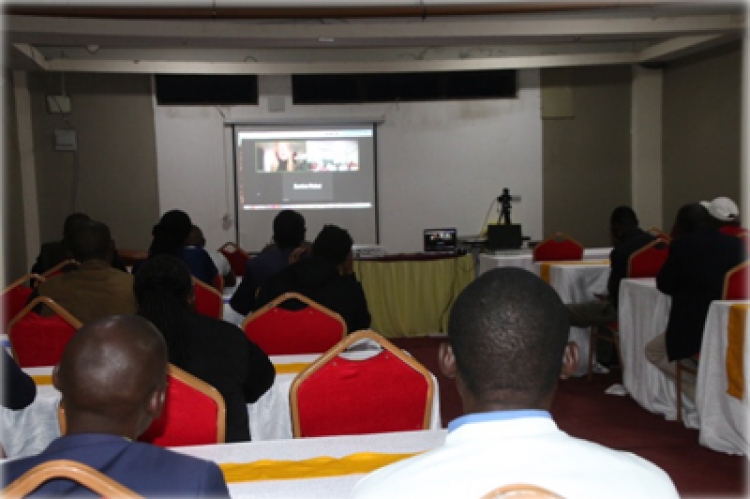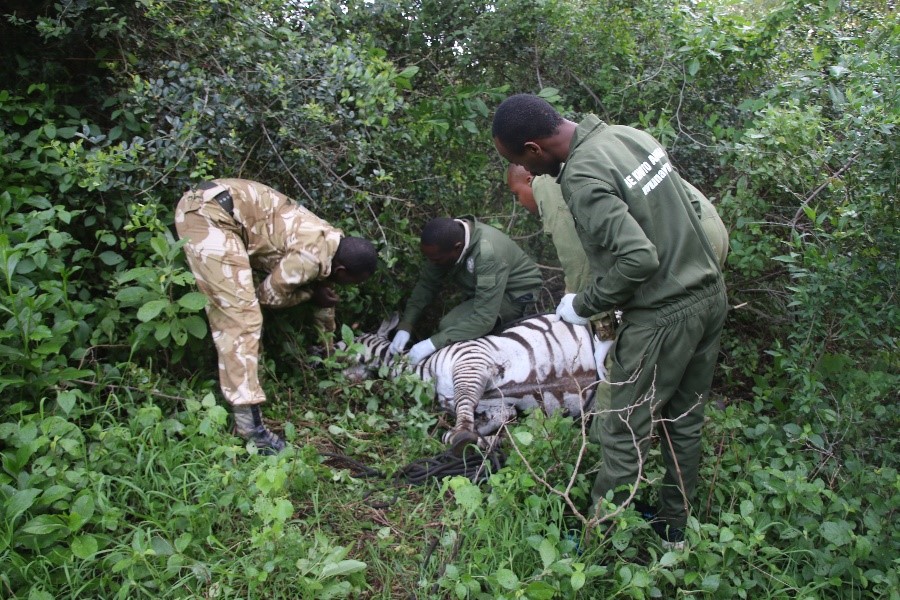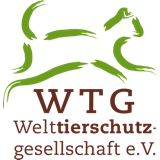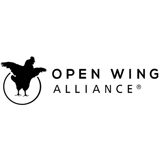History
 The Africa Network for Animal Welfare – USA began in 2005 with a chance meeting between Josphat Ngonyo and David Gies. They were at a conference for companion animals in Anaheim, California. Josphat, or Jos as his friends call him, was part of an international panel sponsored by Animal People. He presented his work and passion for animal welfare. Jos told the story of the Youth for Conservation Corp “going into the bush to remove wire snares” used to trap animals that were sold into the bushmeat trade. This activity is illegal in Kenya. It is poaching. Regrettably the practice of capturing animals in this way is common. It is reported that 40% of food protein in Kenya comes from bushmeat.
The Africa Network for Animal Welfare – USA began in 2005 with a chance meeting between Josphat Ngonyo and David Gies. They were at a conference for companion animals in Anaheim, California. Josphat, or Jos as his friends call him, was part of an international panel sponsored by Animal People. He presented his work and passion for animal welfare. Jos told the story of the Youth for Conservation Corp “going into the bush to remove wire snares” used to trap animals that were sold into the bushmeat trade. This activity is illegal in Kenya. It is poaching. Regrettably the practice of capturing animals in this way is common. It is reported that 40% of food protein in Kenya comes from bushmeat.
To combat this habitual hunting practice Jos was selling wire sculptures made by community people who would otherwise be poaching. The proceeds of all the sales is returned to the crafts people. Many of the craftsmen are young men striving to make any income in Voi.
David Gies was attending the conference for the Animal Assistance Foundation (AAF), a Colorado based philanthropy that funds companion animal programs. While AAF’s programming is limited to the state of Colorado there was common ground between the two individuals for forwarding the cause of humane treatment of animals.
Josphat Ngonyo established ANAW in 2006. David established ANAW-USA with Jos as co-founder in 2007. The US program received its 501(c )(3) in 2008. ANAW-USA and ANAW in Nairobi, simply referred to as ANAW, work together to raise awareness and funding for animal programs in Africa.
ANAW-USA Recognition
 Africa Network for Animal Welfare (ANAW) is pleased to announce receivership of the award of America`s Best Charities (ABC) for the year 2020. ABC was founded in 1988 as an independent Charities of America by a group of volunteers led by James J. Casimir, then the National Director of Appeals for the International Revenue Service. ABC is an IRS-recognized 501 (c) (3) non-profit association of the nation’s finest charities. ABC represents charities that meet the highest standards of public accountability and program effectiveness and to facilitate gifts to those charities from contributors in fund driven work.
Africa Network for Animal Welfare (ANAW) is pleased to announce receivership of the award of America`s Best Charities (ABC) for the year 2020. ABC was founded in 1988 as an independent Charities of America by a group of volunteers led by James J. Casimir, then the National Director of Appeals for the International Revenue Service. ABC is an IRS-recognized 501 (c) (3) non-profit association of the nation’s finest charities. ABC represents charities that meet the highest standards of public accountability and program effectiveness and to facilitate gifts to those charities from contributors in fund driven work.
ANAW has demonstrated the requirements for certification through upholding its core values and by working with governments, partners and other stakeholders to ensure compassion, care and appreciation of all animals.
ANAW would like to thank all its donors, partners, board members, directors and staff who have made this possible by contributing tirelessly towards the vision and mission of the organization. We shall continue advocating for compassion and care of all animals as we contribute to realization of the Sustainable Development Goals (SDG`s) and better relationships between animals and humans alike.
What We Do at the USA Office
 For the last 100 years American philanthropists have invested time, talent and resources in other countries. ANAW-USA is a 21st Century model for organizing partnerships with others outside the United States. It follows a long tradition for addressing poverty reduction by developing economic viability and human development while protecting animals. ANAW is about animal welfare and people. Animal welfare is not advanced unless people and their well-being are advanced first. The first thing ANAW does is promote a humane ethic toward all animals.
For the last 100 years American philanthropists have invested time, talent and resources in other countries. ANAW-USA is a 21st Century model for organizing partnerships with others outside the United States. It follows a long tradition for addressing poverty reduction by developing economic viability and human development while protecting animals. ANAW is about animal welfare and people. Animal welfare is not advanced unless people and their well-being are advanced first. The first thing ANAW does is promote a humane ethic toward all animals.
The second thing we do is build bridges. Similar to the meeting of Jos and David, ANAW is about introducing people to our mutual cause. The unifying sentiment among people affiliating themselves with ANAW—USA’s work is to collaborate with people in other parts of the world to promote quality of life for animals and people.
A third tenant is to document the relationship between the U.S. and the NGO in Kenya. Charitable gifts are recognized in the U.S. as tax deductable gifts as they are transfered to the international nongovernmental orgnaization. We also exist in the context of Homeland Security rules emerging over the past decade. ANAW-USA, through its grant making to ANAW provides expenditure responsibility for international transactions supporting animal welfare in Kenya. Transactions through ANAW-USA are eligible and acknowledged as charitable contribuitions to U.S. tax payers.
 ANAW-USA markets snare art, baskets and other hand crafted items. We strive to establish a sustainable market to support two communities in Kenya, the Waatha people near Voi and the community of Rukanga in the Kasigau region of Central Kenya.
ANAW-USA markets snare art, baskets and other hand crafted items. We strive to establish a sustainable market to support two communities in Kenya, the Waatha people near Voi and the community of Rukanga in the Kasigau region of Central Kenya.
In addition to selling these items for economic development for the Waatha and Rukanga communities, ANAW is motivated to use Snare Art as a teaching tool.
In summary, together with our colleagues in Kenya, we promote sustainability of animals and communities in Africa while partnering with others to promote an all Africa agenda, sustained by communities for conservation, compassion, protection and responsible care of all animals.
Issues at Hand
The main issues at hand are: Bushmeat, Ivory Trade, Sustainable Travel and Working and Companion Animals
- 1. Wildlife – Bush-Meat
- 2. Wildlife – Ivory Trade
- 3. Wildlife – Sustainable Travel
- 4. Working and Companion Animals
1. Wildlife – Bush-Meat
What is Bush-meat?
In Africa, the forest is often referred to as the bush. Meat from wildlife in the forest is therefore referred to as Bushmeat. Some examples of wildlife used for bushmeat are chimpanzees, gorillas, elephants, monkeys, guinea fowl, and many more.
What is happening in Africa?
Due to an increasing demand in the illegal wildlife trade market, the wildlife, the ecosystem, and the humans in Africa are greatly affected. Some effects of the bushmeat trade are:
| 1 | Dangerous and illegal hunting methods, such as wire snares |
| 2 | Hunting of endangered species |
| 3 | Extinction of species |
| 4 | Lack of food security for rural populations |
| 5 | Spread of diseases, such as HIV/AIDS and Ebola |
What is happening in the United States?
Here in the United States we are contributing to the illegal trade of bushmeat. Bushmeat is illegally imported every month. To learn more about the bushmeat trade in the United States, check out http://www.bushmeat.org/bushmeat_and_wildlife_trade/regions_affected/us_and_canada.
What is ANAW doing?
Currently, ANAW is patrolling game reserves and taking down snares. They are rescuing, treating, and releasing animals that have become trapped in snares. They are also actively working with communities to find alternative forms of food and income.For more information, please visit and read:
- Bushmeat Crisis Task Force
- In Defense of Animals (IDA) Africa
- Bushmeat-Free Eastern Africa Network (BEAN)
- The Bushmeat Project
- Traffic: The Wildlife Trade Monitoring Network
2. Wildlife – Ivory Trade
What is happening in Africa?
Although international trade of ivory was banned in 1989 by the Convention on International Trade in Endangered Species of Wild Fauna and Flora (CITES), the issue is still widespread and ivory trade is active. In 2012, around 35,000 African elephants were poached, leading to a $7-$10 billion dollar per year industry worldwide.
Most people are unaware that elephants are killed in order to harvest their ivory. Poachers often drop undetected onto a herd, killing large number of elephants all at once. Currently, sentencing for poachers can be as little as a $100 fine, an easy fee for many poachers.
The illegal wildlife trade also has been known to fund terrorist groups in Africa, including al-Shabaab. Reports show that up to 40% of the cost of al-Shabaab’s army is funded by the illegal ivory trade.
What is happening in the United States?
It often comes as a surprise to Americans that the United States is the second top consumer of illegal ivory trade, following China. Currently, trade and sale of “old ivory” (over 100 years old) is permitted in the United States, however, poachers have found ways to make new ivory appear old, therefore creating an increase in ivory sales overall.
In 2013, the Clinton Foundation, partnered with the Wildlife Conservation Society, African Wildlife Foundation, World Wildlife Fund, International Fund for Animal Welfare, and Conservation International, as well as eleven African countries, created the Partnership to Save Africa’s Elephants.
What can you do?
| 1. | Spread the word to ban ivory trade! Many ivory consumers are unaware of the process of ivory harvesting so help make people aware of the process |
| 2. | Encourage your state legislatures to pass bans on illegal ivory trade. |
| 3. | Lastly, by supporting organizations that promote anti-poaching initiatives or are doing the actual anti-poaching groundwork, you will be making a difference! |
For more information, please visit and read:
- http://wwf.panda.org/what_we_do/endangered_species/elephants/african_elephants/afelephants_threats/
- http://www.independent.co.uk/news/world/africa/illegal-ivory-trade-funds-alshabaabs-terrorist-attacks-8861315.html
- http://www.clintonfoundation.org/clinton-global-initiative/featured-commitments/partnership-save-africas-elephants
- http://www.theguardian.com/environment/africa-wild/2013/oct/02/us-illegal-ivory-trade-elephants
- http://www.ifaw.org/sites/default/files/ifaw-illegal-ivory-infographic.pdf
- http://www.fws.gov/international/pdf/factsheet-us-efforts-to-control-illegal-elephant-ivory-trade.pdf
3. Wildlife – Sustainable Travel
What is sustainable tourism?
Sustainable travel is far more than just a vacation:
| 1. | It improves the well-being of local communities by allowing them to earn a fair income from tourism |
| 2. | It supports a conservation ethic |
| 3 | It limits the environmental and cultural impact of tourist visits |
| 4. | By choosing a responsible tour company, your trip to Africa can be a force for change in improving the economic conditions, protecting fragile ecosystems, preserving traditional cultures while at the same time enriching your journey |
Some important questions to ask before you book a trip:
- Ask the tour director if they have a written policy regarding the environment and local people
- Ask the tour director how many local people they employ, what percent this is of the total, and whether any are in management positions. Ask them if they employ guides from the local community (this can also greatly enhance your experience there)
- Ask them what they have specifically done to help protect the environment and support conservation, and which local charities they work with
- Ask them what percent of produce and services are sourced from within 25km of the lodge
- Ask them how they treat waste water and how they heat their buildings
- Ask them what information and advice is provided to tourists on local cultures and customs.
- Ask them for ideas on how you might get involved with local people and conservation in a worthwhile and rewarding way for you and the destination
Adapted from:
http://www.responsibletravel.com/copy/tourism-greenwashing-ecotourism-greenwashing
http://www.responsibletravel.com/copy/responsible-travel-and-responsible-tourism
http://www.responsibletravel.com/search/quick/results.asp?s=kenya
http://www.theguardian.com/travel/2008/may/11/kenya.africa
4. Working and Companion Animals
Working Animals include domesticated animals that are used for a specific purpose, such as: donkeys, horses, goats, cows, chickens, etc.Companion Animals are the pets we keep with the intention of creating a relationship, such as: dogs and cats. The desire for companion animals comes from the joy of the human-animal bond.
The health of both domesticated animals and humans is at stake when people cannot afford to take proper medical and husbandry care of these animals. Compassionate care is also critical for the mental and physical health of the animals and the human family. ANAW conducts clinics on the proper care of working animals and provides veterinary care to communities which ask for help. ANAW conducts vaccination, parasite control and neuter/spay clinics for dogs and cats periodically. ANAW would like to expand these efforts with your support.

